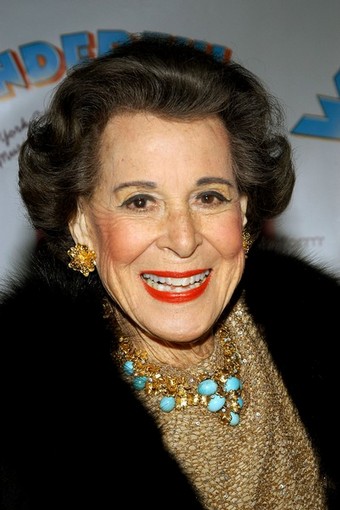Kitty Carlisle (Kitty Carlisle Hart)

Kitty Carlisle was born as Catherine Conn (Kitty is a nickname for Catherine; the surname was pronounced Cohen) in New Orleans, Louisiana. Her family was of German Jewish heritage. Her grandfather, Ben Holtzman, was the mayor of Shreveport, Louisiana. A Confederate veteran of the American Civil War, Holtzman had been a gunner on the CSS Virginia, perhaps better known as by its previous Union name of USS Merrimack, the famous Confederate ironclad warship that fought the USS Monitor. Carlisle’s father, Dr. Joseph Conn, was a gynecologist who died when his daughter was 10 years old.[citation needed] Her mother, Hortense Holtzman Conn, was a woman obsessed with breaking into the prevailing Gentile society (She once reportedly told a taxi driver who asked if her daughter was Jewish, “She may be, but I’m not”.) Kitty Carlisle’s early education took place in New Orleans. In 1921, she was taken to Europe, where her mother hoped to marry her off to European royalty, believing the nobility there more amenable to a Jewish bride – only to end up flitting around Europe and often living in what Carlisle recalled as “the worst room of the best hotel.” Carlisle was educated at the Chateau Mont-Choisi in Lausanne, Switzerland, then at the Sorbonne and the London School of Economics. She studied acting in London at the Royal Academy of Dramatic Art. After returning to New York in 1932 with her mother, she appeared, billed as Kitty Carlisle, on Broadway in several operettas and musical comedies, and in the American premiere of Benjamin Britten’s The Rape of Lucretia. She also sang the title role in Georges Bizet’s Carmen in Salt Lake City. She privately studied voice with Juilliard teacher Anna E. Schoen-Rene, who had been a student of Pauline Viardot-Garcia and Manuel Garcia.
Kitty Carlisle’s early movies included Murder at the Vanities (1934), A Night at the Opera (1935) with the Marx Brothers, and two films with Bing Crosby, She Loves Me Not (1934) and Here Is My Heart (1934). Carlisle resumed her film career later in life, appearing in Woody Allen’s Radio Days (1987) and in Six Degrees of Separation (1993), as well as on stage in a revival of On Your Toes, replacing Dina Merrill. Her last movie appearance was in Catch Me If You Can (2002) in which she played herself in a dramatization of a 1970s To Tell the Truth episode. In the early 1950s, Carlisle was an occasional panelist on the NBC game show, Who Said That?, in which celebrities try to determine the speaker of quotations taken from recent news reports. Kitty Carlisle became a household name through To Tell the Truth, where she was a regular panelist from 1956 to 1978, and later appeared on revivals of the series in 1980, 1990–91 and one episode in 2000. (One of her most notable hallmarks was her writing of the number one: When she voted for number one, it was written with a Roman numeral I.) She was also a semi-regular panelist on Password, Match Game, Missing Links, and What’s My Line? On December 31, 1966, Carlisle made her debut with the Metropolitan Opera, as Prince Orlofsky in Strauss’s Die Fledermaus. She sang the role 10 more times that season, then returned in 1973 for four more performances. Her final performance with the company was on July 7, 1973. She reprised this role during the Beverly Sills Farewell Gala in October 1980. Kitty Carlisle died on April 17, 2007, from congestive heart failure resulting from a prolonged bout of pneumonia. She had been in and out of the hospital since she contracted pneumonia some time prior to November 2006. She died in her New York City apartment, with her son, Christopher Hart, at her bedside. She was interred in a crypt next to her husband, Moss Hart, at Ferncliff Cemetery in Hartsdale, New York.
Born
- September, 03, 1910
- USA
- New Orleans, Louisiana
Died
- April, 17, 2007
- USA
- New York, New York
Cause of Death
- congestive heart failure
Cemetery
- Ferncliff Cemetery and Mausoleum
- Hartsdale, New York
- USA



